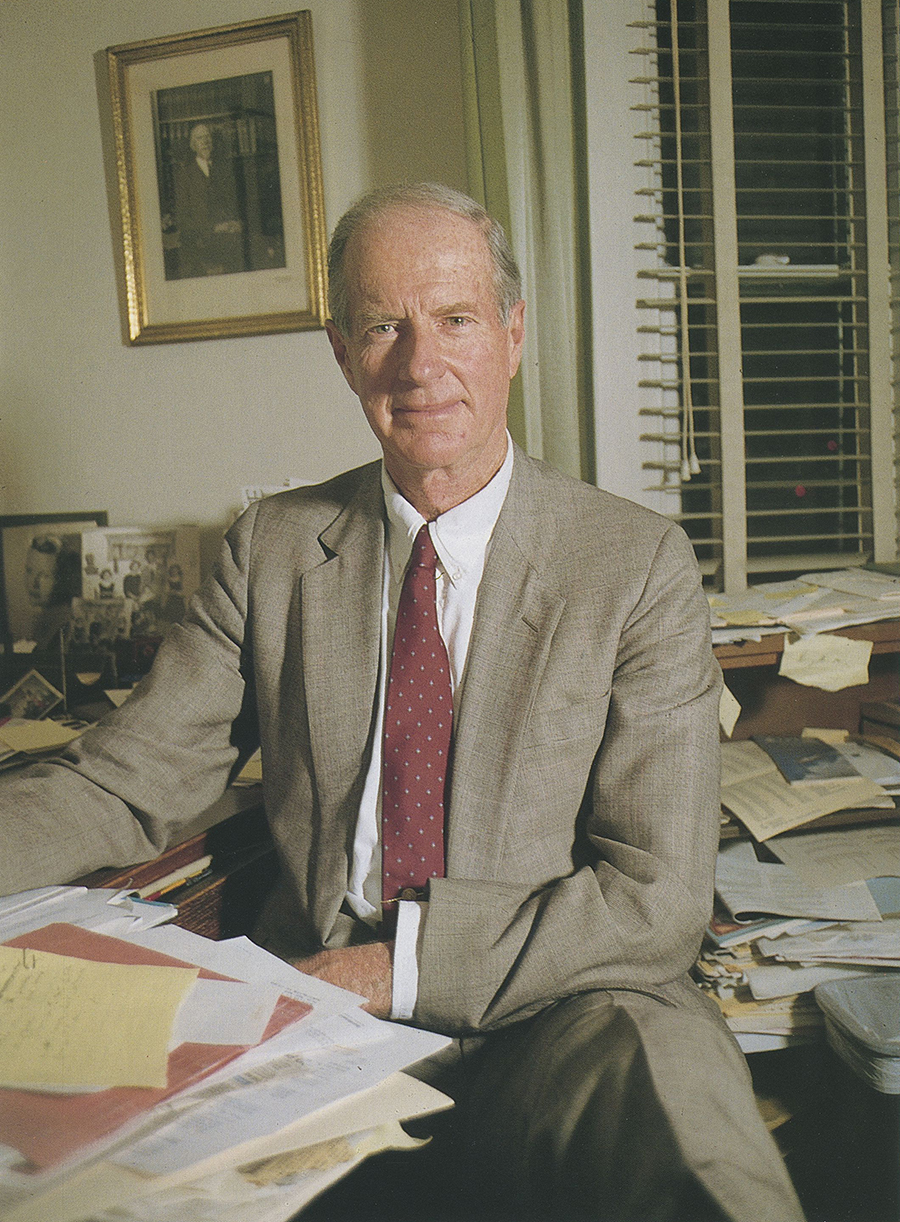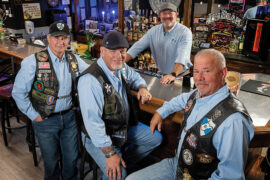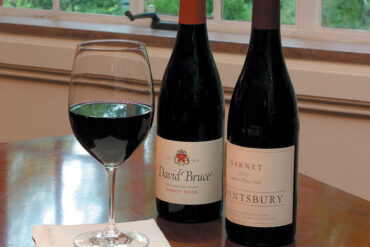Life has been good to the gentleman from Eleventh Street
By Michael A. Friel
HQ 2 | WINTER 1990
For a man whose life has been tempered with a great deal of order, William Campbell’s office is a mess. There are boxes stacked in the corners, boxes piled on the floor, on chairs, on tables … on boxes. Papers, memos, forms and clippings from today’s Herald-Dispatch litter his desk, covering it several inches deep.
How does a successful insurance executive conduct his business amid such clutter? How does he ever find anything?
“I would classify this office as orderly chaos,” Campbell explains. “The great thing about it is that when you are looking for something you can’t find, you end up finding something you didn’t know was lost.”
But it is Campbell who appears lost, or, at least, out of place, here in his second floor office on 11th Street in Huntington. There is a certain dignity about the man, which is in sharp contrast to his small, three-room office with its brown, speckled linoleum. He is a tall, trim man, who is well-dressed and well-mannered. He speaks slowly, succinctly, only after he has arranged his thoughts to be spoken in the proper order. And yet Campbell has spent the past 41 years here in this office making his living. He says he is comfortable here. So much of his past is on display here. And history truly has been kind to Bill Campbell.
Dozens of photographs line the walls of his office, chronicling his successes, most notably on the golf course as 15- time winner of the State Amateur Open, 1964 champion of the U.S. Amateur Open, president of the United States Golf Association, and captain of the prestigious Royal & Ancient Golf Club of St. Andrews, Scotland.
“I feel very comfortable reminding myself that these things actually happened. Each of these pictures tells me a lot and reminds me of a lot.
“I don’t know where I’m going, but I know where I have been. I guess that provides some continuity.”

There are few places Campbell has not been. His love for golf has taken him across the United States, to Canada and the United Kingdom. During WWII he served three and one-half years in France and Germany with the 100th Infantry Division. The pursuit of education took him to New jersey and Princeton University, from which he graduated in 1947 with a degree in history. But each time Campbell returned to Huntington.
“Huntington has been a wonderful hometown for me,” Campbell says. “I have traveled a lot and yet keep coming back. It provides me – along with golf and the various other interests I have – with a constant in a very fast-moving world. People here care about each other. And they take the time to let you know about it. I enjoy the relationships I have developed here.”
Ask friends and acquaintances about Campbell and most are likely to tell you of Bill Campbell the family man (a father of six children), Bill Campbell the civic leader and Bill Campbell the gentleman. Inevitably, all will tell you about Bill Campbell the golfer.
Campbell’s longtime friend, the late C. McDonald England of Huntington, described Campbell in a 1988 newspaper article as a “Simon-pure amateur. Some people say the only one left in the world. He has a marvelous capacity. I think his adrenaline flows faster than most people’s. I’ve never seen him slow down.”
Others will tell you that when it comes to West Virginia golfers, none is better and none knows more about the game than Bill Campbell. And he should. In the 100 years golf has been played in this country, Campbell has been teeing off, driving and putting for 63 of those years. His father, who Campbell says was a “useful player,” taught his son the game in 1926. Bill was only three-years-old. He has stuck with the game, never losing interest.
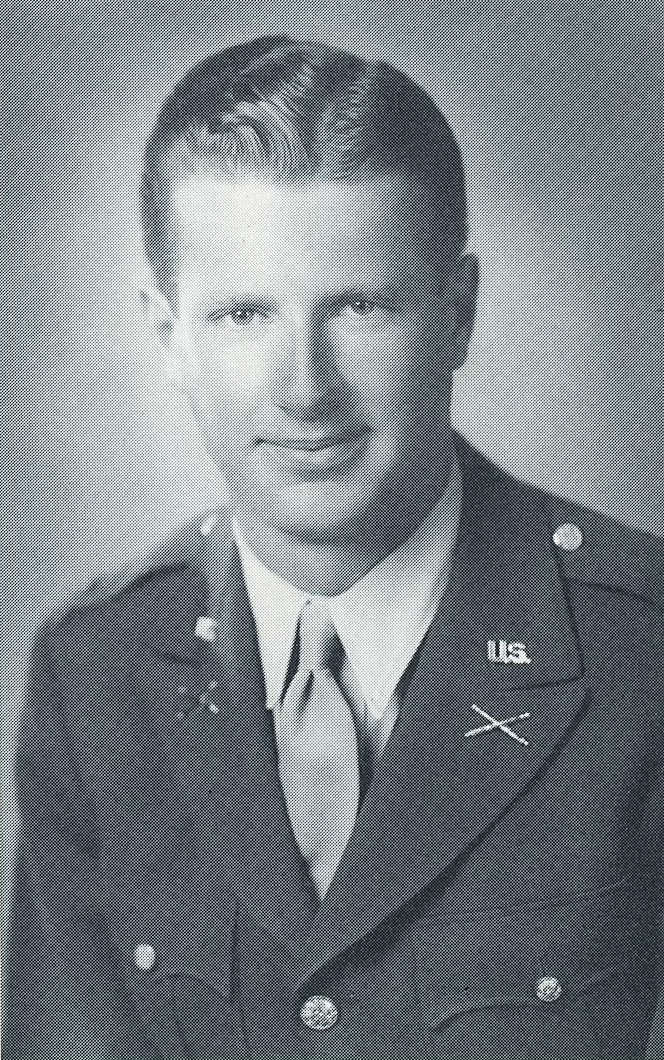
When he was 10 or 11 Campbell became serious about the game. By 13 he was golfing competitively, playing in the State Amateur Open.
“In those days there wasn’t much opportunity to play golf in West Virginia. At that time, if you wanted to play golf outside the State Amateur, you went national. And that’s how I happened to get involved with the U.S. Amateur Open at the age of 15.”
In 1964 Campbell won that tournament, and he has continued to play golf ever since. But never does Campbell mix his love for golf and the work he does as president of Campbell Insurance Agency.
“I don’t play weekday golf and never have, “Campbell states emphatically. “On weekdays when I began my business I chose not to because I wanted to be successful in business. That’s not to say I won’t play golf during the week when I’m away from Huntington. But when I’m here, I just won’t do it.”
Campbell, no doubt, could have given up his 9-to-5 job years ago had he chosen to make his living playing golf. However, he has remained an amateur.
“I never wanted the life of a professional golfer. I knew that wasn’t what I wanted. It’s so concentric. That’s a hard life. Instead, I’ve enjoyed the variety, which, if you look around these walls, you will see that I have many interests, not just golf.”
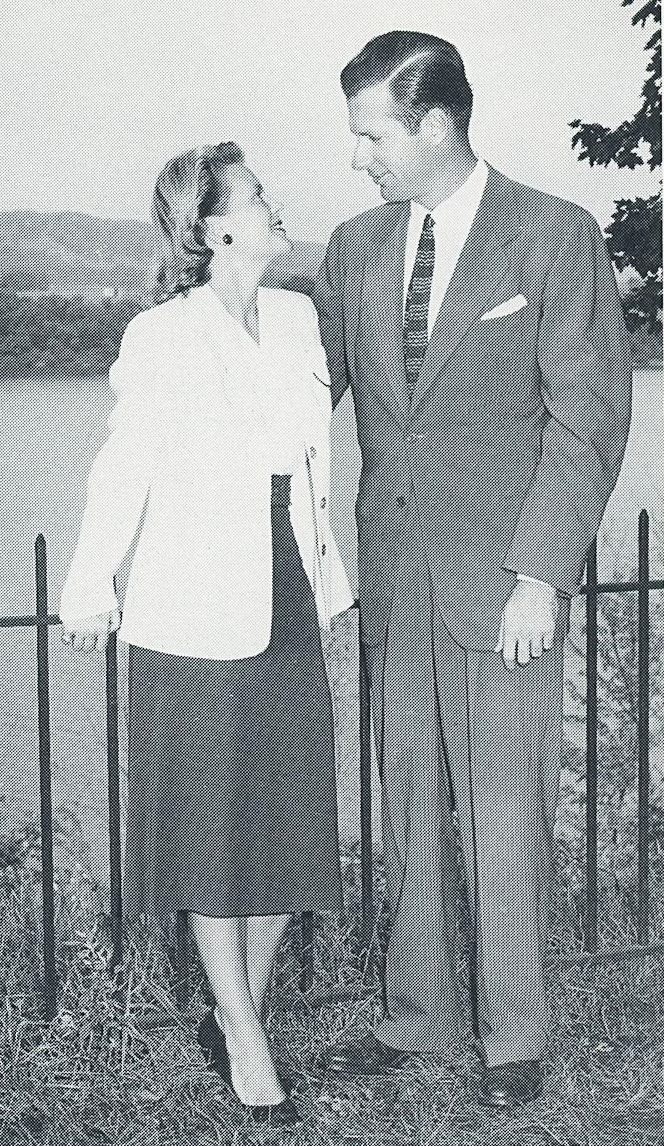
Among those other interests is aviation. Campbell owned and flew for more than 25 years his own plane. Flying was a sport also enjoyed by Campbell’s late father.
“He took up flying the same year as I. In fact, we got our licenses the same year – 1951. He was 57 years of age and I was 28. We often flew together. He was a great partner and a good person to fly with because he was a stickler for the workings of the aircraft.”
After graduating from college in 1947, Campbell returned to Huntington where he opened his own business and lobbied successfully to get himself appointed to the state House of Delegates after a local representative resigned. Campbell served in the House from 1948 to 1951, at which time he attempted a move to the state Senate. He ran in the Democratic primary against the incumbent, losing by just 296 votes. This was the first of what would become for Campbell a string of political defeats. He returned to politics the next year when he ran for the U.S. Congress.
“I wrote my golf partner Frank Stranahan and said, Tm through, Frank. I’m out of the game. I’m going to do something else.’ Of course I lost. I ran against the incumbent in the Democratic primary and I lost badly. I then decided to stay out of it. I realized I was a bad candidate in the wrong party.”
But Campbell didn’t stay away from the political arena.
In 1956 he switched to the Republican Party and worked for a friend from Parkersburg who was running for Congress. Campbell’s friend lost. Campbell then took a reprieve from politics until 1970, when he suffered his narrowest political defeat.
“I ran for the state Senate and lost by just 179 votes. I won in Cabell County, but they got me in Wayne County. I lost by one vote per precinct, 179.”
Campbell never again actively sought political office. “Since then I’ve been active in helping other people. The most active, I guess, was when I was Governor Moore’s campaign manager for the U.S. Senate. Actually, Governor Moore was his own campaign manager. I was chairman of his committee.”
Although politics have dominated much of his life, Campbell says he no longer harbors any political aspirations. “Oh, no, in fact, there was a joke when I was nominated as president of the USGA and later as captain of the Royal & Ancient Golf Club .. .I was the only nominee. That’s the only way I could have won … when I was the only nominee.”
While Campbell is no longer interested in running for political office, he remains concerned about what happens politically. He is especially concerned about the economic revitalization of Huntington. He says the city began to experience real problems economically in the late 1970s and early 1980s. He believes the city is slowly recovering. He credits, in part, the formation of state banking companies, such as Key Centurion Bancshares, for breaking down the political barriers that have hurt the city of Huntington. He also applauds the state’s efforts to attract more tourist dollars. But, he says, the state cannot rely solely upon tourism. According to Campbell, it must also attract new types of businesses.
“Politically, I think we have been at a disadvantage here in Huntington for a number of years. West Virginia, however, is the problem more than Huntington is the problem. And I think we have an advantage over some cities that are centrally located in the state because we are actually in the corner of the state and economically contiguous with parts of two other states. We need to market ourselves as a Tri-State region.”
Campbell says West Virginia has been victimized by “the bad habits of the past.”
“I’m concerned about our image as well as our self-image. It’s an old saying hut it’s true. We are bad about shooting ourselves in the foot.”
“I respect very much what others have done to get Huntington on the road to economic recovery. We have a group of men and women who are doing it differently now and perhaps better. In any case, we have had a history in Huntington of dedicated, civic-minded people.”
In fact, Campbell said people are one of West Virginia’s greatest resources. “West Virginians are independent, forthright, industrious, honest, reliable and productive people.” But he adds, “We can’t survive on that alone.”

Campbell is talking now about one of his favorite topics: The time he spent in St. Andrews, Scotland, as captain of the Royal & Ancient Golf Club: When appointed in 1987, Campbell was only the third American to hold the position since it was formed in 1754. His responsibilities included representing the club at golfing and social functions. For the first half of his one year tenure, Campbell commuted between Huntington and St. Andrews; for the last half he and his wife, Joan, took a house that dated from 1480.
The experience of St. Andrews had a profound effect on Campbell. He says the people of Scotland are very much like those of West Virginia. “Scotland and West Virginia are not that far apart.” He said he and his wife were made to feel at home with the Scots, who, like Campbell, have a great deal of respect and love for the game.
“In Scotland people take up golf at an early age. In Scotland every child, every young person up to the age of 16 played for free. Golf is a wonderful catalyst around the world and in St. Andrews … especially St. Andrews.”
Campbell compares the time he spent in Scotland to the Broadway musical “Brigadoon,” about a mythical village that comes to life one day every 100 years.
“Scotland,” Campbell explains, “was my Brigadoon.”
Nonetheless, Campbell says the experience was exhausting. And with the whirlwind life Campbell has led, he has experienced his share of exhaustion. And stress.
“Like a moth going to a candle, I must like it. I find myself engaging in stressful situations, many of which are self-imposed.”
Campbell shows no visible signs of the stress he has faced. At 66 he looks and says he feels much younger. He neither drinks nor smokes.
“Some days I’m dealing with people, adrenaline is pumping, and I feel 20. I still think of myself as a 20-year-old who has a while life to lead. Then, I look in the mirror and know that is not true.”
Campbell is relating yet another of the stories from his past, stories he pulls from memory with such ease. This one took place a few years ago when Dave Anderson of The New York Times came to Huntington to do a story on Campbell of Golf Digest.
Campbell explained to Anderson that he could live most of his life in 11th Street in Huntington. In addition to his office, Campbell’s bank, church, lawyer and the Old YMCA of which he served as president are within a two block area. Campbell also ran the USGA from his office during his tenure as president.
“You haven’t come very far,” Anderson said to Campbell. “But don’t knock it. Eleventh Street is not half bad.”
Indeed.
For Campbell, at least, history tells us that 11th Street has been quite good.

